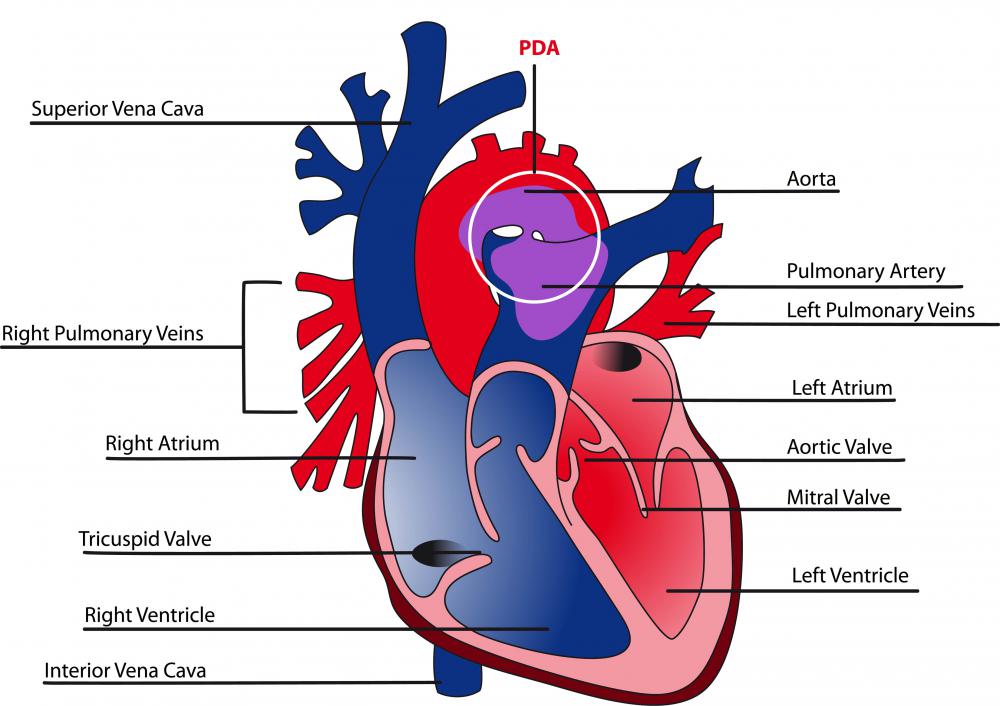At WiseGEEK, we're committed to delivering accurate, trustworthy information. Our expert-authored content is rigorously fact-checked and sourced from credible authorities. Discover how we uphold the highest standards in providing you with reliable knowledge.
What Are the Symptoms of Ischemic Heart Disease?
Symptoms of ischemic heart disease may vary in frequency and severity. Some of the most common symptoms include pain or pressure in the chest or shortness of breath. More serious symptoms of ischemic heart disease may include clammy skin, shoulder pain, and nausea. Some patients may also experience fatigue, dizziness, or swelling of the abdominal area or the feet. Any individualized questions or concerns about potential symptoms of ischemic heart disease should be discussed with a doctor or other medical professional.
In some cases, the symptoms of ischemic heart disease may occur occasionally instead of every day, often giving the patient a false sense of security that the condition may not be as serious as it actually is. There may be a mild to moderate feeling of pressure in the chest, or shortness of breath may occur, especially after exertion. If these symptoms are not present every day, it is often easy for the patient to avoid taking these occurrences seriously.

The chest pain and shortness of breath associated with this type of heart disease may sometimes feel like heartburn or indigestion, often delaying an accurate diagnosis. In some cases, the discomfort may spread to the arms or back. In many cases, the symptoms resolve on their own after a few minutes or may be relieved by rest. Symptoms of ischemic heart disease usually develop slowly over a period of months or years, but sudden symptoms may occur as well, frequently signaling a medical emergency.
It is important to note that some of the symptoms associated with this heart disease can indicate the presence of a life-threatening emergency. Some symptoms that require immediate medical attention include sudden or severe chest pain, especially on the left side of the chest, or pain in the neck or jaw areas. Pain that radiates to the shoulder could be a sign of a life-threatening complication, especially in women. Nausea, with or without vomiting, especially when combined with other symptoms, should be reported to a doctor immediately.
The symptoms of ischemic heart disease may be treated in a variety of ways. Prescription medications are often successful in controlling the symptoms, although more invasive treatment methods are sometimes necessary. Implantable devices such a pacemaker or defibrillator may provide adequate symptom relief for many patients. In the most severe cases, when heart failure reaches a critical level, heart transplantation may be the only reliable treatment method available.
AS FEATURED ON:
AS FEATURED ON:











Discuss this Article
Post your comments